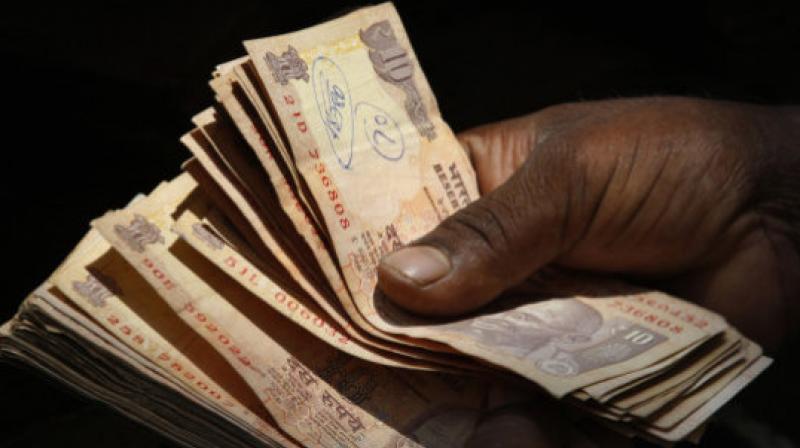Govt steps to boost capital inflow unlikely to reverse Rupee slide: Moody's
The government also announced its intention to curb imports and reiterated its commitment to this year's fiscal deficit target.

New Delhi: The five-pronged strategy announced by the government to increase capital inflow into the country is unlikely to reverse the rupee depreciation, Moody's Investors Service said on Monday.
The Indian government estimates that the measures, including exempting investors from withholding tax for offshore rupee-denominated (masala) bonds and allowing Indian banks to become market-makers, will increase capital inflows by USD 8-10 billion, or 0.3-0.4 per cent of GDP, in the fiscal year that ends March 31, 2019.
The government also announced its intention to curb imports and reiterated its commitment to this year's fiscal deficit target. “Although these measures provide credit positive support to India's external account, they are unlikely to reverse the currency's depreciation,” Moody's said.
The rupee has depreciated more than 10 per cent against the US dollar since January 2018 and was at Rs 72.1 against the dollar as of September 21. Moody's, however, said that strong macroeconomic fundamentals will keep the credit risks of a weaker currency at bay.
“The measures will likely take time to affect capital inflows. Moreover, although the potential removal of hedging requirements could reduce some short-term pressure on the rupee, it could also heighten corporates' exposure to currency fluctuations,” Moody's said. Concurrently, measures to curb non-essential imports might help to contain the imports bill, but will likely have a lagged effect, it added.
At current levels, India's current-account deficit (CAD) is still much narrower than the near 5 per cent of GDP posted during the “taper tantrum” period in 2013, when the currency depreciated by nearly 20 per cent between May and August. The CAD, difference between inflow and outflow of foreign exchange, widened to 2.4 per cent of GDP in the April-June quarter.
Moreover, India's External Vulnerability Indicator, the ratio of external debt payments due over the next year to foreign exchange reserves, remains low at 65 per cent when compared with its peers, Moody's said. Although foreign reserves have declined by 5.7 per cent to USD 376.6 billion since peaking in March 2018, they are significantly higher than their level of around USD 250 billion in 2013, said the US-based rating agency.
“The large foreign-currency reserves provide additional policy space and flexibility for the central bank to manage external shocks and reduce the risk of sustained and large portfolio outflows, as well as pressure on the currency,” Moody's said. It said oil prices at current levels will raise expenditures and add to existing pressures on India's fiscal position.
“Those pressures include the lowering of goods and services tax rates on a range of consumer goods and a tax cut for small businesses, as well as the relatively high minimum support prices set for this year,” Moody's said.
“We, therefore, see risks that the central government deficit will be wider than targeted and expect the general government deficit (central and states) to be around 6.3 per cent of GDP in fiscal 2019, compared with 6.5 per cent the previous year,” Moody's said.
The measures announced by the government on September 14 included removal of single-exposure limit of 20 per cent on foreign portfolio investors for corporate bonds, lowering to one year from three years the minimum maturity on manufacturing firms' external commercial borrowings (ECBs) of up to USD 50 million.

